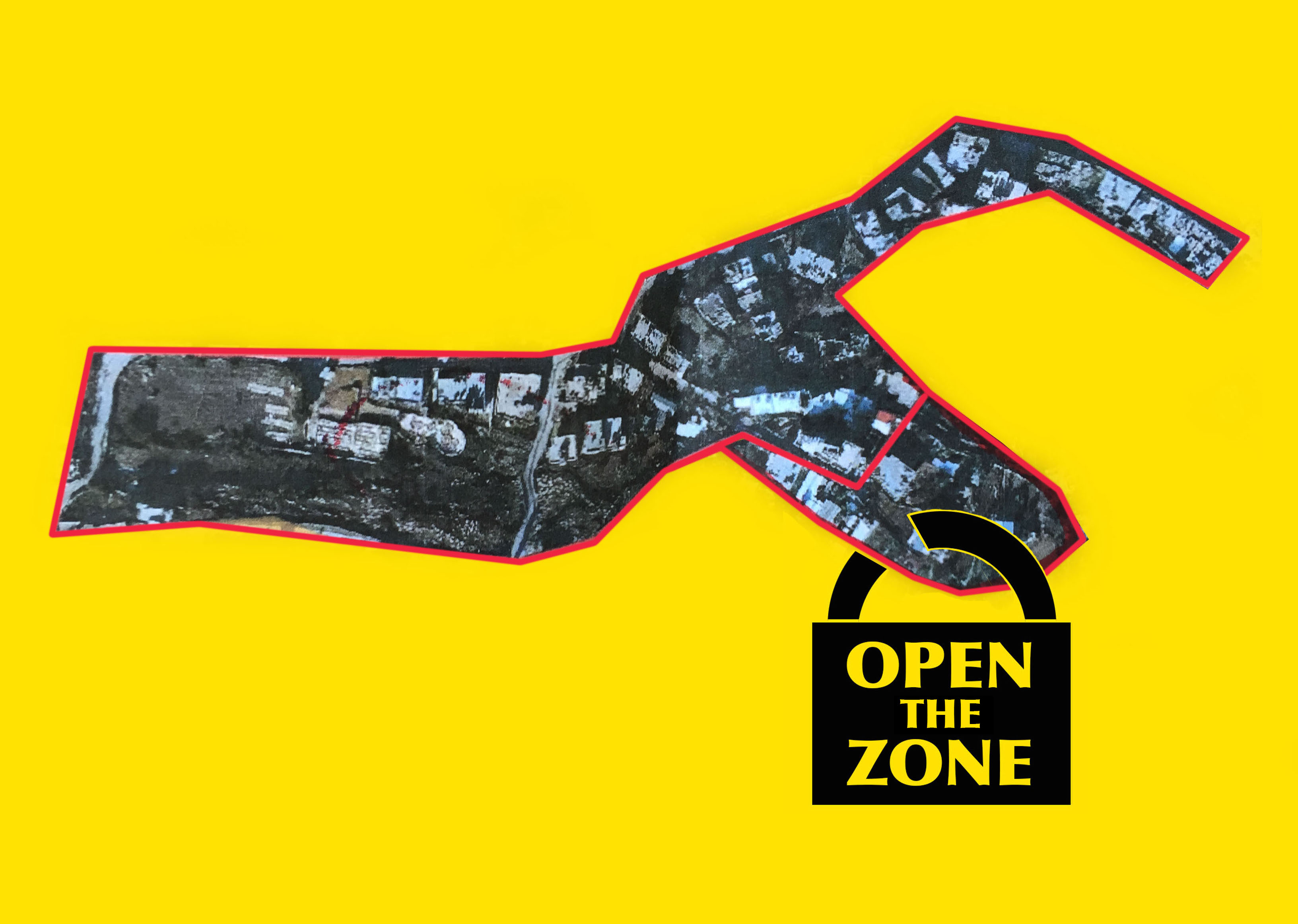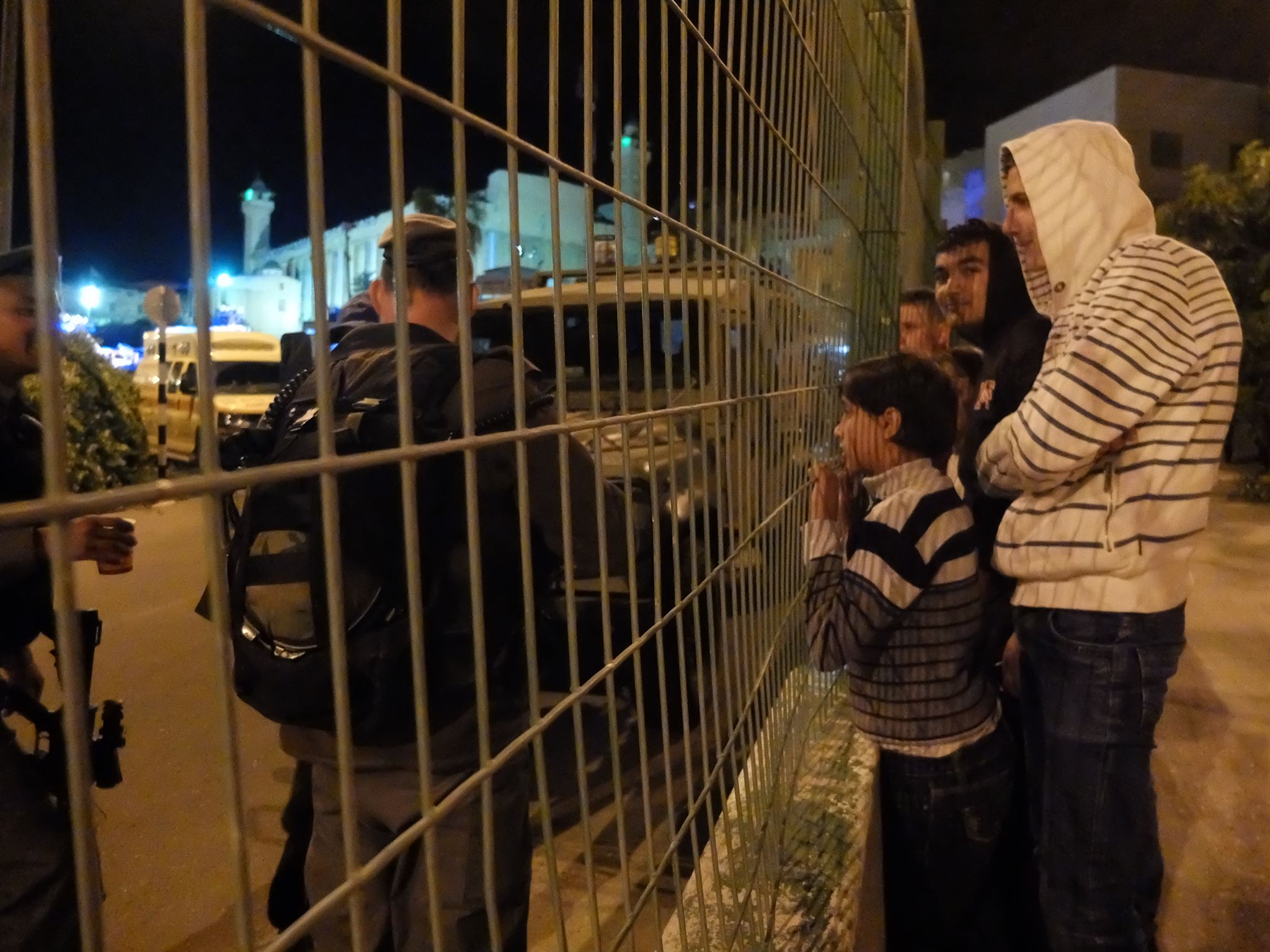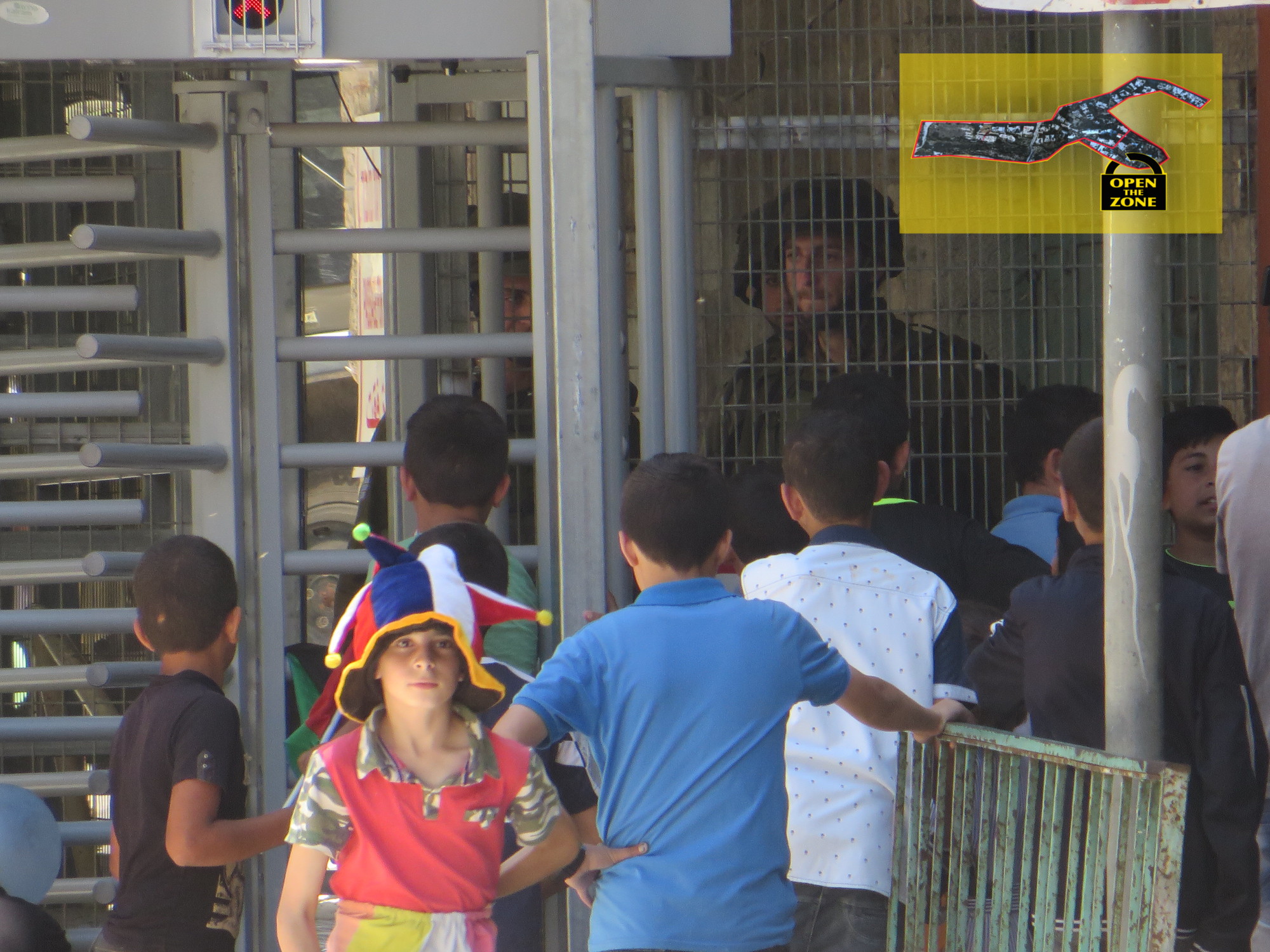Category: Hebron
-
An end to discrimination? Closed Military Zone in Hebron neighbourhood officially stopped
20 May 2016 | International Solidarity Movement, al-Khalil team | Hebron, occupied Palestine The closed military zone (CMZ) encompassing the Tel Rumeida neighbourhood and Shuhada Street in occupied al-Khalil has officially been lifted. According to the Israeli army spokesperson, the CMZ-order was not extended, now allowing some non-residents into the area. The International Solidarity Movement…
-
Celebrating Israeli Independence day from the other side of apartheid fence
13th May 2016 | International Solidarity Movement, Verena, Al Khalil team | Hebron, occupied Palestine Leaving the meeting I was searching for a safe way to go through the old City of Hebron alone, where there was a celebration of ”Israeli Independence day” going on. I wanted to reach my ISM team members who were already patrolling there.…
-
Open The Zone: press conference
13th May 2016 | Open the Zone campaign | Hebron, occupied Palestine On 12th May 2016, the Open the Zone campaign held a press conference in front of Shuahda checkpoint in Hebron – protesting the continuous collective punishment and denial of human rights to Palestinians in the ‘closed military zone’. The press conference was launched…



